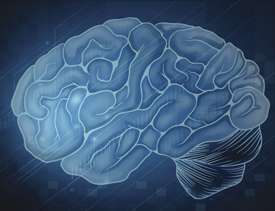New research means 360 million more people in India can be tested for autism

A research project by the University of Reading could lead to more people in India receiving earlier diagnosis and treatment of Autism Spectrum Disorders (ASD) than ever before.
The study, funded by Autism Speaks in collaboration with Action for Autism, translated four tests originally devised for the UK and USA to screen and diagnose ASD into Hindi and Bengali - two main regional languages of India.
Paying special attention to the differences between cultures the team, led by Dr Bhisma Chakrabarti, tested the translated versions on children in two Indian cities. They found all of them were effective in identifying children affected with ASD. This means a more accurate assessment of ASD could soon be available to an extra 360 million people.
The sooner ASD is diagnosed the earlier sufferers can get access to treatment. Research suggests that early intensive behavioural interventions are more effective in improving the social skills of children with ASD.
Dr Chakrabarti, from the University's Department of Psychology, commented: "Despite having the second largest population in the world (1.2 billion), India still lacks an estimate of how many people in India have ASD. Having access to standardised screening and diagnostic tools (SDT) for autism in regional languages is key to generating such an estimate."
"We tested the usability of four widely used SDT on 170 children with and without autism spectrum conditions in Delhi and Kolkata. On all of the tools, children with ASD showed robust and reliable differences from those of the control group. This work provides the first evidence that these SDTs are useable in Hindi and Bengali. More children can now be assessed, and those diagnosed with ASD could receive early treatment which could make a huge difference to them and their families."
Estimates based on western countries suggest India could have well in excess of two million children with ASD. Having access to well-validated screening and diagnostic tools is an essential step in determining the true cost of autism in India, which could assist the Indian Government in planning health and research strategies.
Dr Nandini Chatterjee Singh, from the National Brain Research Centre in Delhi, commented: "As an active researcher in the field of autism I welcome these tools and am grateful to Dr. Chakrabarti and his team for this research. The first step in autism research is diagnosis using standardised assessments. In the past we have been often felt crippled because of the lack of tools in languages native to India.
"The availability of culturally appropriate standardised tools will open doors to research across various demographics. We will then hopefully begin to get some insights into the incidence of autism in India."
More information: Rudra A, Banerjee S, Singhal N, Barua M, Mukerji S, Chakrabarti B (2014): "Translation and Usability of Autism Screening and Diagnostic Tools for Autism Spectrum Conditions in India," Autism Research (advanced online publication). onlinelibrary.wiley.com/doi/10 … 02/aur.1404/abstract


















